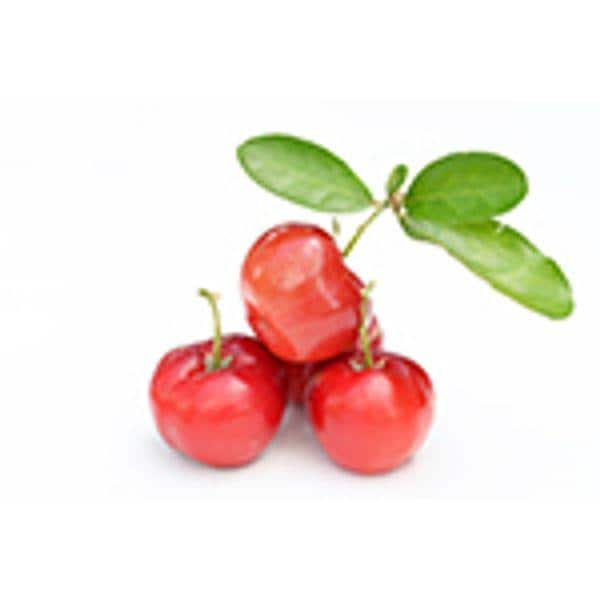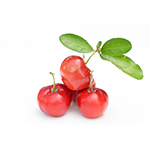12 Foods to Eat for More Vitamin C
Vitamin C is a potent antioxidant known for supporting several areas of wellness including immune health, brain health, skin health and cardiovascular health. As a water-soluble vitamin, your body won’t store it for long periods of time, meaning it’s important to either supplement or include vitamin C foods in your diet.
So how much do you need? According to the National Institute of Health, the Recommended Daily Allowance (RDA) for vitamin C is 90 mg for adult males and 75 mg for adult females. Pregnant women should aim for 85 mg while lactating women should get 120 mg. Smokers should consume at least 35 mg more than non-smokers.
Most people think about oranges when it comes to vitamin C, but there are many other great fruits and vegetables that contain similar amounts or even more. Find your favorite produce items in the list below, and make sure to add them daily to maintain your vitamin C levels.
Top Vitamin C Foods (per 1 cup)
1Acerola Cherry: 1,644 mg
The numbers don’t lie—acerola cherries are by far the best food source of vitamin C. You can get this delicious fruit in juice and powder form when it’s not in season.
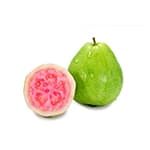
2Guava: 377 mg
Depending on where you live, guava may be difficult to find, but this superfood is well worth searching for due to its nutrient content. Guava also contains potassium, manganese, folic acid and fiber.
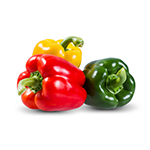
3Peppers: 190 mg – 341 mg
Peppers feed your body vitamin C as well as beta-carotene, an antioxidant known for its vision health properties. Enjoy green, red, yellow or orange peppers as a healthy snack with avocado or cottage cheese, or add them to your favorite recipe.
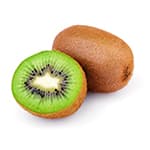
4Kiwi: 167 mg
Kiwi is a great addition to smoothies and yogurt bowls, and for good reason. They deliver more than twice as much vitamin C as the daily recommendation. Kiwi also contains flavonoids and potassium for additional benefits.
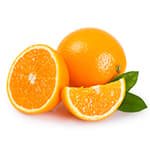
5Oranges: 96 mg
Worry not! Even if they aren’t the top option, oranges still have a lot of vitamin C. Enjoy a glass of orange juice or a bowl of orange slices, and you’ve got plenty of vitamin C for the day.
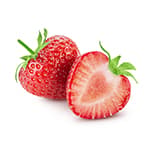
6Strawberries: 89 mg
Strawberries are one of the most beneficial berries for your health. Along with vitamin C, they deliver other key antioxidants and are a good source of fiber.
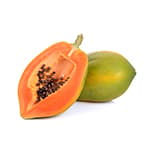
7Papaya: 88 mg
Papayas are a great source of both vitamins C and A. They also contain beneficial enzymes like papain. Add one to yogurt, smoothies, oatmeal or cottage cheese for an extra boost of flavor.
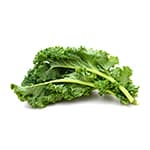
8Kale: 87 mg
While all dark leafy greens contain good amounts of vitamin C, kale is by far the best option. Using it as a base in salads or smoothies will give you the RDA for vitamin C as well as other key nutrients like vitamin A.
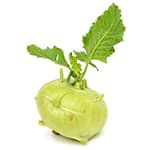
9Kohlrabi: 84 mg
Kohlrabi is a prime example of not judging a vegetable by its cover. This unique-looking vegetable can be cooked as fries, used in place of cabbage for coleslaw or even spiralized into noodles. Give this vitamin C veggie a try in your next recipe.
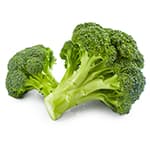
10Broccoli: 81 mg
Of course broccoli is going to make the list! Kids might not be fans of it, but it’s packed with essential nutrients like vitamins C and K. Add it to a veggie platter, and snack away!
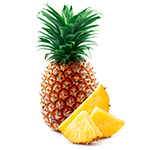
11Pineapple: 79 mg
Like papaya, pineapple is a delicious tropical fruit that delivers a good amount of vitamin C. It also contains bromelain, which is known for supporting digestive health. Add pineapple to your smoothie or drink it as a juice.
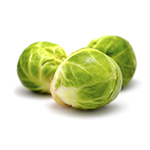
12Brussels Sprouts: 75 mg
Whether you want to use them as a salad base or cook them as a side dish, Brussels sprouts are packed with essential nutrients. Along with vitamin C, they contain vitamins K and A, folate, potassium, manganese and fiber.
Sources
What’s your favorite vitamin C food? If you supplement vitamin C, what vitamin C form do you take?
